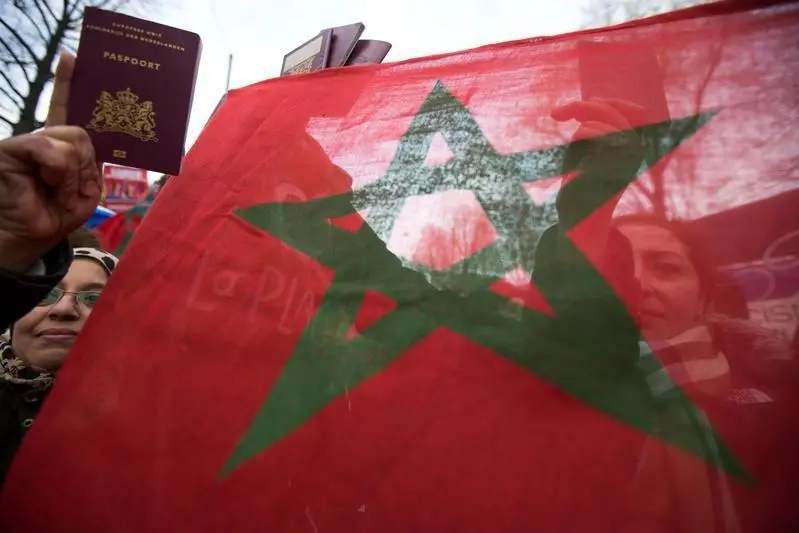PHOTO
RABAT - When Hassna Amzil's parents speak their original language of Amazigh, she struggles to follow as part of a generation whose families moved from Morocco's mountains to its Arabic-speaking major cities and now regret their lost roots.
Despite Morocco recognising Amazigh as an official language, with its distinctive script printed onto road signs and government buildings, it is barely taught in schools.
Indigenous speakers fear the state is happy to idly watch as the language, widely known as Berber abroad, withers away in what some Amazigh activists see as a betrayal of promises made in a new constitution enshrined after protests in 2011.
"Amazigh should be taught in school to help people like me who did not learn it at home reconnect with the roots of Moroccan identity," said Amzil, 36, who is trying to learn Amazigh as a beginner using internet courses.
"A language we do not teach is a language we kill."
Though Amazigh is taught in some schools, the number of children learning it has fallen from 14% in 2010 to just 9% now, according to activists.
Amzil, who works for a trading company in Casablanca, has asked her mother why they only spoke Arabic at home.
"She said we needed to prioritise Arabic because that was the language we would be schooled in and she didn't want our studies to suffer," she said.
Her experience is familiar among many Moroccan families as people left Amazigh-speaking rural regions over recent decades for bigger cities where the local dialect of Arabic is the lingua franca.
Abdelmalik Yamini, a 34-year old from Casablanca whose roots are from the southern Zagora region, speaks no Amazigh at all, he said. "We only spoke in Arabic because our grandparents and parents did not speak Amazigh to us," he said.
Although most Moroccans are of Amazigh descent, the national statistics agency has said only a quarter of the population still speak the language.
"This percentage confirms that Amazigh language lost two thirds of its speakers in five decades," said Ahmed Assid, a human rights activist and Amazigh writer.
Even in cities in traditionally Amazigh areas, such as the southern port of Agadir, Moroccan Arabic is being increasingly used, said anthropologist Afoulay ElKhatir.
PROTESTS
While urbanisation and personal convenience have driven much of the switch to Arabic, many activists blame the erosion of Amazigh on political decisions too.
Although Amazigh areas had spearheaded an armed struggle for independence from France, the newly independent state adopted Arabic as the main language in the 1950s to build a post-colonial nation.
Amazigh was ignored by a ruling elite who saw themselves principally as Arabs and were inspired by a regional tide of nationalism.
However, as Morocco's economy left poorer regions behind, the blue, green and yellow Amazigh flag with a red symbol, borne by an increasingly vocal movement, started to be raised during protests against inequality.
Though King Mohammed VI promised in 2001 to promote the language, the issue played into the "Arab Spring"-inspired protests in 2011 that authorities calmed in part through a new constitution.
That document enshrined Amazigh as an official language but a law to govern its use was not published until 2020 and its teaching in schools has lagged.
Amazigh speakers dislike the term Berber as it stems from the Roman description of them as barbarians and was then applied by waves of invaders of North Africa across the centuries.
Ilham Bouagal, the only Amazigh teacher at a school of some 600 pupils near Rabat, said she only taught children up to the age of eight and lacked educational books in the language.
While the government has increased the budget to support Amazigh language by 50% this year, to 300 million dirhams ($30 million) and promised to hire hundreds of official clerks for the language in public services, activists remain unimpressed.
"The slowness of implementing Amazigh as an official language is weakening it," said Imad Meniari, head of AMREC, Morocco's oldest Amazigh association.
(Reporting by Ahmed ElJechtimi, Editing by Angus McDowall and Andrew Cawthorne)





















